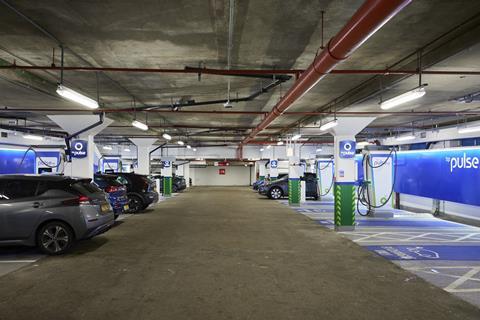
New rules requiring car manufacturers to sell a minimum proportion of zero-emission vehicles have come into force today, enacting what the government claims is the world’s ’most ambitious regulatory framework for the transition to electric vehicles’.
The zero-emission vehicle (ZEV) mandate outlines that 80% of new cars and 70% of new vans sold in Great Britain will be zero emission by 2030, increasing to 100% by 2035. It comes after prime minister Rishi Sunak delayed the ban on the sale of new diesel and petrol cars from 2030 to 2035, to give consumers more time to switch to electric, and to develop the country’s charging infrastructure.
The announcement was marked by Technology and Decarbonisation Minister Anthony Browne visiting the new BP pulse hub in London today, where ultra-fast EV chargers are installed.
He said the law provided certainty for the charging sector to expand the charging network, which has grown by 44% since this time last year to over 50,000 public chargepoints, despite the government failing to hit its target for rapid and ultra-rapid EV chargers at motorway service areas last year. Also, he says, it will support the growing number of EVs in the UK, which account for over 16% of the new UK car market, as well as stimulating secondhand EV sales.
In advance of the minister’s visit, Akira Kirton, vice president, BP pulse UK, said the mandate instilled confidence in the business going ahead with its plans to invest £1 billion in the UK’s charging infrastructure to develop hundreds of EV charging hubs across the country by 2030.
Gordon Balmer, the PRA’s executive director, said it would be a shot in the arm for the growth in electric vehicles. “We could see electric vehicle prices fall as it might be cheaper for manufacturers to give a discount on them rather than paying a penalty for not producing enough.”


























